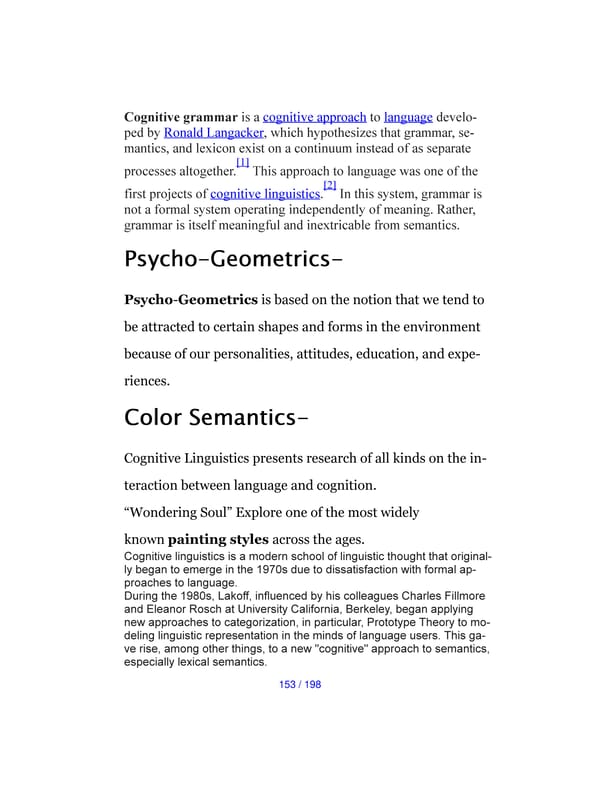Cognitive grammaris a cognitive approach to language develo- ped by Ronald Langacker, which hypothesizes that grammar, se- mantics, and lexicon exist on a continuum instead of as separate [1] processes altogether. This approach to language was one of the first projects of cognitive linguistics.[2] In this system, grammar is not a formal system operating independently of meaning. Rather, grammar is itself meaningful and inextricable from semantics. PPPsssyyyccchhhooo---GGGeeeooommmeeetttrrriiicccsss--- Psycho-Geometricsis based on the notion that we tend to be attracted to certain shapes and forms in the environment because of our personalities, attitudes, education, and expe- riences. CCCooolllooorrr SSSeeemmmaaannntttiiicccsss--- Cognitive Linguistics presents research of all kinds on the in- teraction between language and cognition. “Wondering Soul” Explore one of the most widely known painting styles across the ages. Cognitive linguistics is a modern school of linguistic thought that original- ly began to emerge in the 1970s due to dissatisfaction with formal ap- proaches to language. During the 1980s, Lakoff, influenced by his colleagues Charles Fillmore and Eleanor Rosch at University California, Berkeley, began applying new approaches to categorization, in particular, Prototype Theory to mo- deling linguistic representation in the minds of language users. This ga- ve rise, among other things, to a new "cognitive" approach to semantics, especially lexical semantics. 153 / 198
 Advanced Grammar in Tables: English Grammar is easy. New Edition Page 26 Page 28
Advanced Grammar in Tables: English Grammar is easy. New Edition Page 26 Page 28